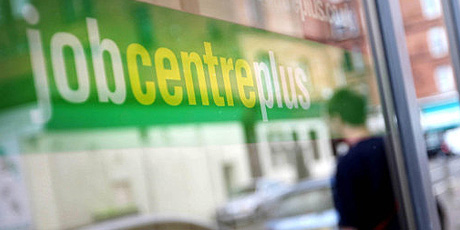Universal Credit is failing millions of people, particularly the most vulnerable say Peers.
The Economic Affairs Committee Of the House of Lords agrees with the original aim of Universal Credit but blames the scheme’s design for soaring rent arrears and the use of food banks in a report out this morning.
Cuts to social security budgets over the last decade is causing widespread poverty and hardship. Universal Credit needs urgent investment to catch up and provide claimants with adequate income. The temporary increase in the standard allowance in response to the Covid-19 pandemic shows that the previous level of awards was too low. The increase should be made permanent.
The Government is using Universal Credit to recover debt, mostly £6 billion of historic tax credit debt. Deductions of up to 30% of the standard allowance, and in some cases more, can be taken from claimants. This has left many households with less money than they are entitled, often at no fault of their own. Tax credit debt should be written off as it is unlikely to be repaid.
The five-week wait for the first Universal Credit payment is the main cause of insecurity. This wait entrenches debt, increases extreme poverty and harms vulnerable groups disproportionately. The Government should introduce a non-repayable two-week grant to all claimants.
The way payments are calculated can result in large fluctuations in income month-to-month, making it extremely difficult for claimants to budget. The level of awards should be fixed at the same level for three months. There should be a mechanism to enable claimants to have an early reassessment if their circumstances change.
Lord Forsyth of Drumlean, Chair of the Economic Affairs Committee, said:
“Most people, including our Committee, broadly agree with the original aims and objectives of Universal Credit. However, in its current form it fails to provide a dependable safety net. It has led to an unprecedented number of people relying on foodbanks and not being able to pay their rent.
“The mechanics of Universal Credit do not reflect the reality of people’s lives. It is designed around an idealised claimant and rigid, inflexible features of the system are harming a range of claimant groups, including women, disabled people and the vulnerable.
“Universal Credit needs more money to catch up after 10 years of cuts to the social security budget. It requires substantial reform to its design and implementation, the adequacy of its awards, and how it supports claimants to navigate the system and find work.
“The five-week wait for a first payment must be replaced by a non-repayable two-week grant to all claimants. The monthly payment calculations which can result in big fluctuations to claimants’ incomes should be fixed for three months. Historical tax credit debt needs to be written off.
“The punitive nature of Universal Credit has not worked. It punishes the poorest by taking away their sole source of income for minor infractions. It needs rebalancing, with more carrot and less stick, particularly as large numbers of claimants will have ended up on it because of events completely out of their control.”
Iain Porter, Policy & Partnerships Manager at the Joseph Rowntree Foundation, said:
“This report reinforces the scale and urgency of reforms needed to Universal Credit. As we seek to navigate the current economic storm, now more than ever we need a social security system that provides a reliable lifeline to families and treats them with dignity and respect.
“Delays in payments, the inadequacy and unpredictability of financial support is too often pulling people into deeper poverty and hardship. The Government must act on the recommendations of this report to ensure that every claimant of Universal Credit receives adequate and timely support that helps them keep their heads above water in these extremely difficult times.”







